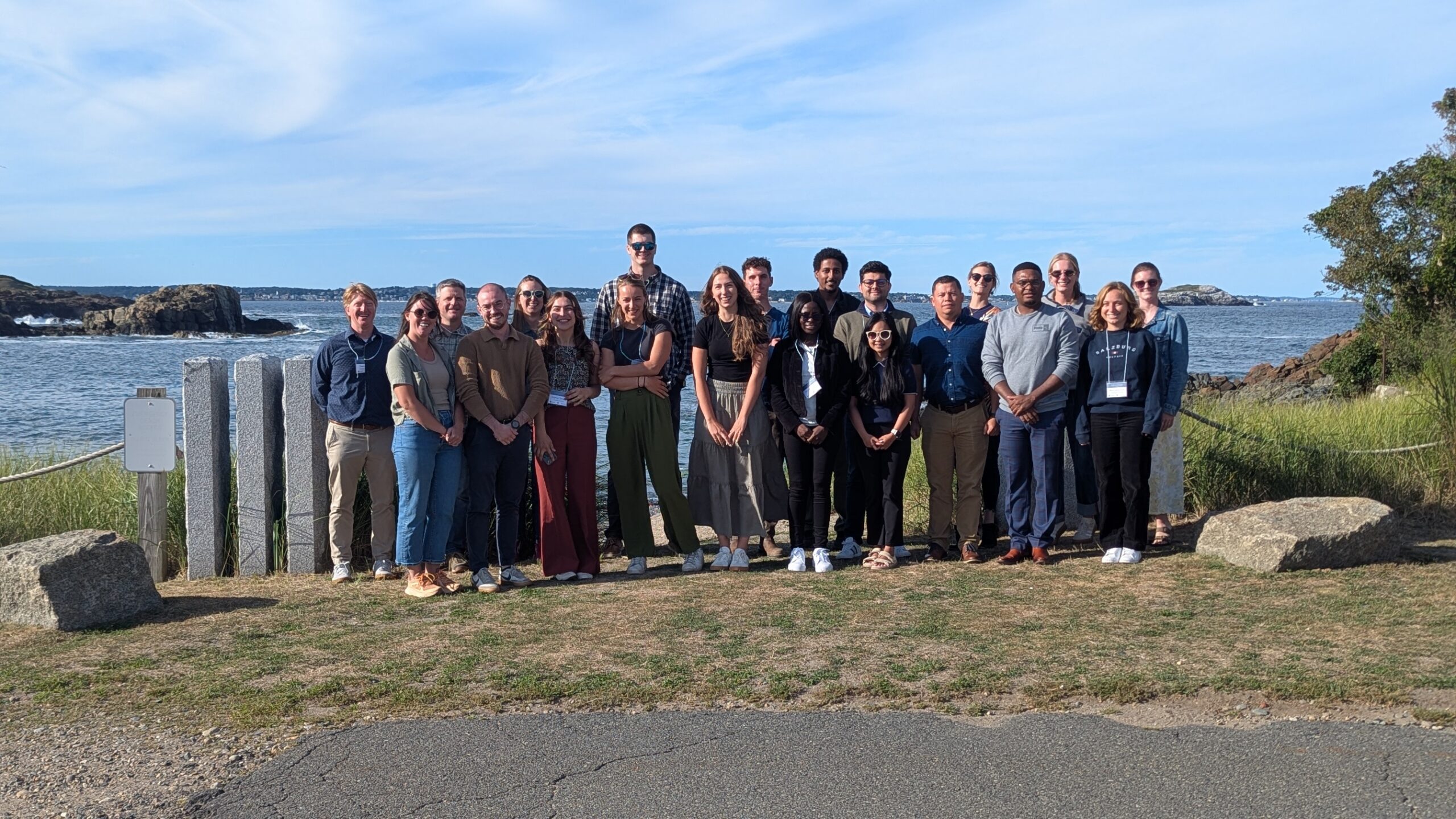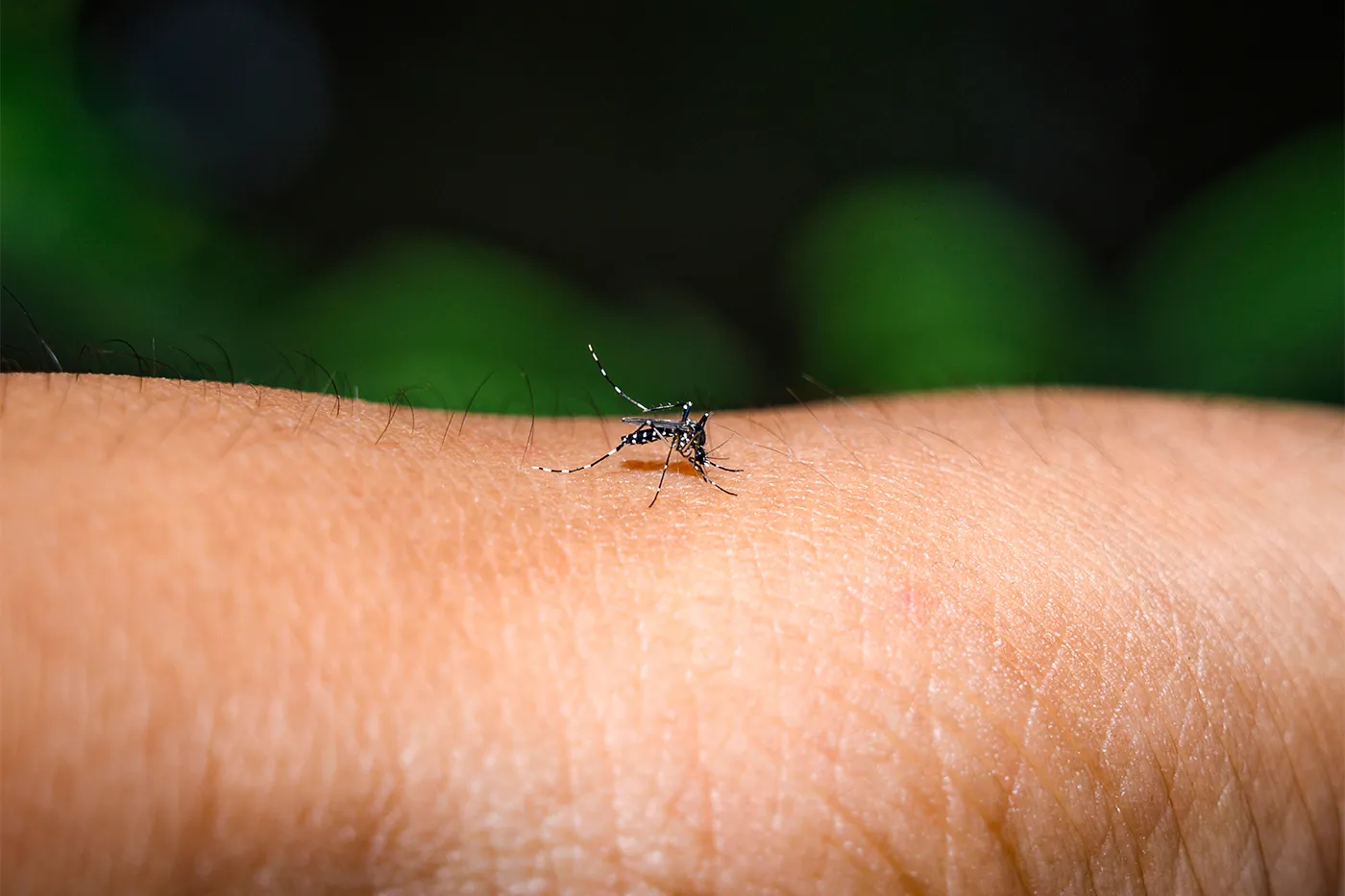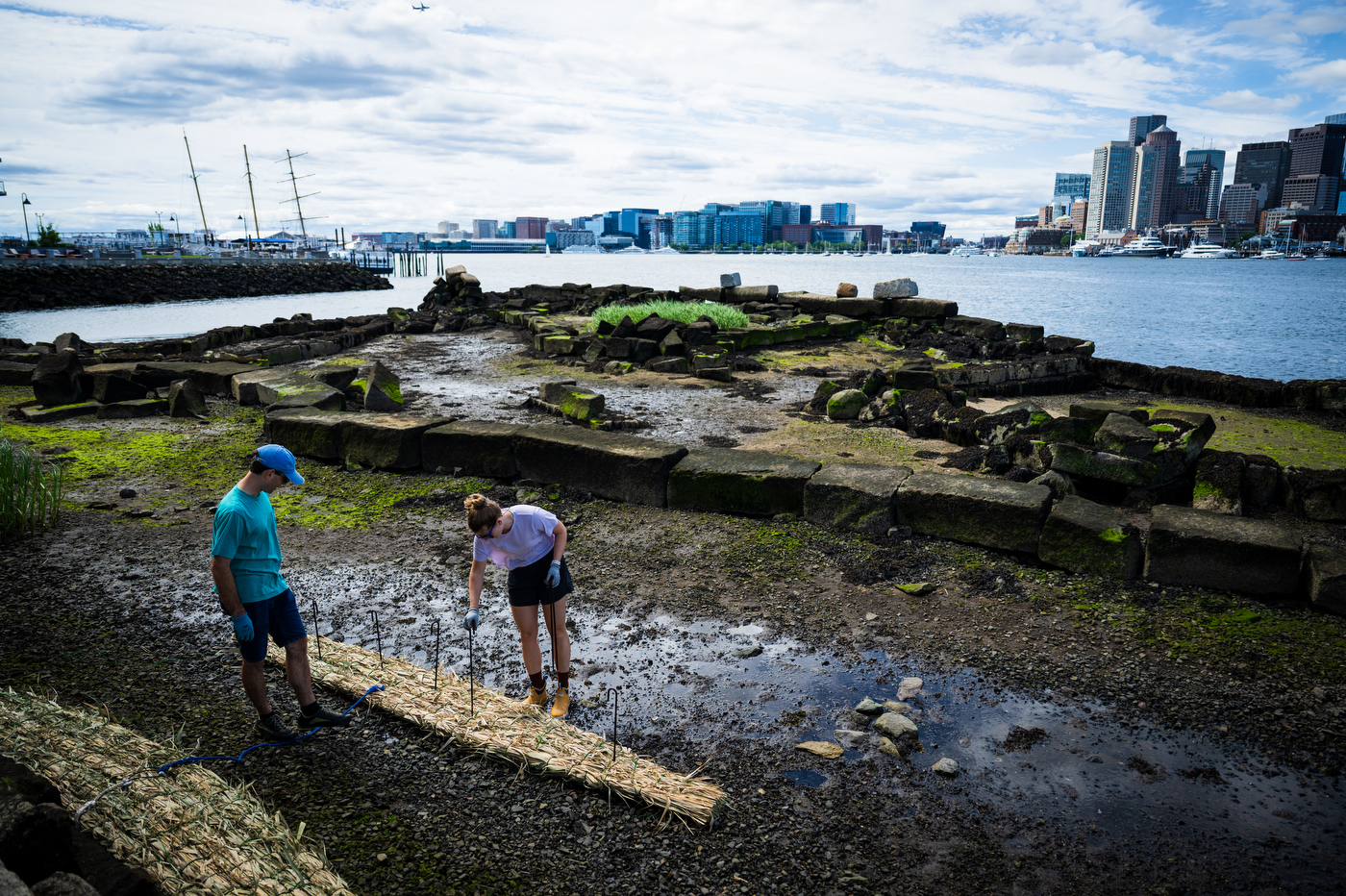COS News
News

A new report from a group of Northeastern researchers explores across disciplines how biotech can ensure safe, sustainable life beyond Earth.
The key to international space cooperation is developments in biotechnology, Northeastern researchers say
News

The NeuroPRISM lab, led by assistant psychology professor Stephanie Noble, makes tools that pave the way for reliable and reproducible neuroimaging of the brain.
Precise maps of the brain’s deepest corners are made possible through tools developed by these Northeastern researchers
Showing all results

Scientists explore stakeholder-informed spatial modeling for hydrologic sciences
MES researchers convened an NSF-supported workshop exploring the role of stakeholders in hydrological studies and futures

Three Seas student wins AAUS Award
Congratulations to Zoe Salyapongse, Three Seas Program Cohort 45, on being awarded the American Academy of Underwater Sciences (AAUS) research award!

Houston, we have a Husky
Imelda Muller, behavioral neuroscience '13, brings expertise in bioastronautics as one of 10 candidates who will undergo training to become an astronaut for NASA’s next generation of flights to the moon and beyond.

The key to international space cooperation is developments in biotechnology, Northeastern researchers say
A new report from a group of Northeastern researchers explores across disciplines how biotech can ensure safe, sustainable life beyond Earth.

Comet or alien spaceship? An astrophysicist explains what we know about interstellar traveler 3I/Atlas
Confirmed as a comet, 3I/Atlas is one of only three interstellar objects we’ve detected entering our solar system. Northeastern’s Jacqueline McCleary breaks down what makes it special and what we can learn from it.

A summer of STEM and discovery
In the Bridge to Science/Bridge to Calculus Summer Program, students dive into STEM, financial literacy, and enrichment activities while building confidence and curiosity. They spend a summer of exploration, creativity, and hands-on learning in math, science, and technology. Read more below for a recap of the enlightening summer our high school scholars had during the […]

College of Science welcomes new faculty!
Welcome to the new College of Science faculty who joined us in 2025 in Boston, Oakland, and Toronto!

Northeastern research finds aerobic fitness and lower body fat are associated with better mental health outcomes in children
Northeastern researchers looked at the link in children ages 8 to 11 in one of the first studies looking at these relationships in this population.

Precise maps of the brain’s deepest corners are made possible through tools developed by these Northeastern researchers
The NeuroPRISM lab, led by assistant psychology professor Stephanie Noble, makes tools that pave the way for reliable and reproducible neuroimaging of the brain.

Meet Neptune, the rare blue lobster donated to Northeastern’s Marine Science Center in Nahant
Research suggests only one in two million lobsters is blue, like this rare animal caught by a lobster boat captain and donated to Northeastern.

Researchers use machine learning to predict dengue fever with 80% accuracy
Northeastern University breakthrough gives public health officials a step up in preparing careworkers to handle spikes in the disease.

Using invasive wetland grasses, Northeastern grads adopt a green approach to stop erosion
Kayla Sklar and Anja Clark, Northeastern alumni, work with Emerald Tutu lead Gabriel Cira to grow native wetlands grasses on beds formed from invasive species.